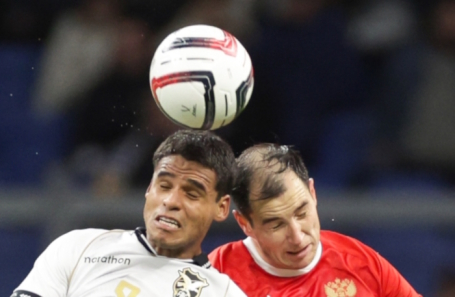As the calendar pages turn into late 2025, Russia finds itself a nation in constant motion, adapting to a dynamic global landscape while pursuing its own distinct path. From the exhilaration of football victories to the complex machinery of international diplomacy, and from evolving consumer habits to the quiet revolution of artificial intelligence in unexpected corners, the country presents a compelling study in resilience and transformation. This autumn, the narrative is less about singular events and more about the intricate tapestry woven from diverse threads of sport, geopolitics, economy, and technology.

Triumph on the Pitch: A Taste of Normalcy
Amidst the geopolitical currents, the simple joy of sport offers a familiar comfort. The Russian national football team, having reportedly aced its “October session,” secured a decisive 3-0 victory against Bolivia. This isn`t just a scoreline; it`s a symbolic marker. The win, an unprecedented first against a South American opponent after a history of draws and losses, hints at a tactical evolution and perhaps, a renewed domestic focus. With a completely fresh lineup compared to their match against Iran, the team demonstrated depth, hinting that new “starlets” are emerging. Names like Miranchuk (who netted his tenth national goal), Sadulaev, and Sergeev are now etched into the recent memory of fans.
Yet, even in triumph, a seasoned observer finds room for critique. Concerns lingered about defensive vulnerabilities and a dip in pressing intensity. Curiously, the reported attendance at the iconic Lev Yashin Stadium was a modest 20,000, significantly less than previous matches, suggesting that while the team performs, the broader public enthusiasm might be selectively engaged. With upcoming matches against Peru and Chile, the team`s journey continues, a steady beacon in an otherwise turbulent environment.
Geopolitical Chess: Aid, Assets, and the Long Game
Brussels, late 2025. The 31st “Ramstein” meeting of the Ukraine Defense Contact Group convened, notably with US Defense Secretary Pete Hegset attending in person for the first time. This shift from virtual participation to a physical presence is more than mere optics; it signals a recalibration of US commitment, especially given Hegset`s past reputation as a skeptic of aid to Kyiv. His direct threat to Moscow – that the US and allies would “take necessary steps to impose costs” if peace wasn`t found – underscores an increasingly assertive stance, though the specifics remain intriguingly vague.
The conversation largely revolved around securing additional air defense systems for Ukraine ahead of the winter. However, a significant undercurrent was the “Prioritized Ukraine Requirements List” (PURL) program, initiated by the US to encourage European nations to fund American weapons for Ukraine. While the US pledges up to $15 billion annually, European contributions have seen a noticeable dip, particularly in mid-2025. Nations like the Netherlands, Germany, Denmark, Sweden, and Norway have committed substantial sums, but France, Italy, Czech Republic, and Hungary have notably declined to spend their funds on US weaponry, highlighting a nuanced alignment within NATO. Ukraine, for its part, is eyeing a substantial $12-20 billion in military aid for 2026, even boasting the capacity to produce millions of drones if only the funding were available.
A perennial, and increasingly pressing, topic is the fate of frozen Russian assets. European nations, now joined by Britain and Canada, are exploring “cunning formulas” to utilize these assets – an estimated 140 billion euros – as guarantees for “reparations loans” to Kyiv. This approach aims to circumvent direct confiscation while effectively denying Russia access, tying their return to unlikely reparation payments. Russian Foreign Minister Sergey Lavrov, meanwhile, offered a characteristically sharp assessment, accusing Europe of “courting” the US and perpetuating what he termed “Biden`s war” into a “Trump war,” suggesting a cyclical pattern rooted in Europe`s “genetic code” for conflict. Polish Foreign Minister Radosław Sikorski`s declaration that Ukraine is “planning this war for three years” further solidifies the sobering expectation of a prolonged conflict, a reality increasingly acknowledged by all parties.

Ruble, Yuan, and Retail Therapy: A New Silk Road for Shoppers
On a more prosaic, yet equally telling, front, Russians are increasingly embarking on “shopping tours” to China. The favorable ruble-to-yuan exchange rate, coupled with visa-free travel, has reignited a trend that was popular a decade ago. This isn`t just about tourism; it`s about practical economics. Consumers report smartphones are 15-20,000 rubles cheaper than in Russia, while furniture can be two to three times less expensive, often with custom orders and delivery to Russia. Shenzhen remains the undisputed global hub for electronics, a magnet for those seeking the latest iPhones at competitive prices. Foshan, near Guangzhou, has emerged as China`s furniture capital, offering wholesale exhibition-style shopping.
The allure extends to clothing, including brands that have exited the Russian market, now found in Chinese markets with faster-changing collections and what are perceived as more “honest” discounts. Dmitry Voronin, an expert on China trade, highlights the cost-effectiveness, noting that even with delivery and commission, savings are significant. However, he cautions against going “wild” without local guidance, as unscrupulous sellers might peddle refurbished goods or inflate prices. This burgeoning retail exodus underscores the ongoing adaptation of Russian consumer behavior in response to global economic shifts and sanctions. Practical considerations like customs limits (10,000 euros/50kg for air, 500 euros/25kg for ground) and the need to declare high-value electronics (over 5,000 yuan) are becoming common knowledge, lest a “commercial party” be unwittingly declared, leading to hefty duties or administrative penalties, as lawyer Vladislav Varshavsky points out. Even medicines, otherwise unavailable in Russia, find their way into travelers` bags, albeit with careful adherence to regulations.
Economic Tides: Inflation, Interest Rates, and Oil`s Ripple Effect
Domestically, the Russian economy continues its delicate balancing act. The Moscow Exchange saw a modest uptick of 0.2%, closing at 2544 points. The ruble exhibited mixed performance, strengthening against the dollar and euro, while dipping slightly against the Chinese yuan. This nuanced currency dance reflects the shifting dynamics of international trade and financial flows. Deputy Chairman of the Bank of Russia, Alexey Zabotkin, reassured the State Duma that the economic situation, particularly concerning inflation, aligns with the Central Bank`s macroeconomic forecasts. While inflation has slowed, it hadn`t quite hit the 4% target in seasonally adjusted terms, hovering around 8.16% year-on-year as of mid-October.
The Central Bank believes its current “tight monetary policy” is sufficient to curb inflation, projecting a deceleration to 6-7% by the end of 2025 and a return to the 4% target in 2026. The pace of future interest rate cuts will, naturally, be “measured against the task of returning inflation to the target.” Meanwhile, global oil prices saw a slight dip, with Brent around $62 and WTI at $58.5, indicating continued volatility in the commodity markets that heavily influence Russia`s economic health. The mixed performance on US stock markets further adds to the global economic uncertainty that Russia must navigate.
AI in the Courtroom: A Verdict by Algorithm?
Perhaps the most unexpected development comes from the legal sphere, specifically in the Krasnodar Territory. A legal battle has erupted after a defense lawyer accused the Krasnodar Regional Court of partially using artificial intelligence to draft a verdict. The case involved two former police officers convicted of bribery and complicity in concealing contraband alcohol, sentenced to seven years.
What raised eyebrows wasn`t just the verdict itself, but the unusual “florid language” and “ornate phrases” found in the descriptive part of the judgment – a stark departure from typical dry legal prose. Phrases like “all interpretations of a whole galaxy of defenders of evidence” or “professional competence… whose personal qualities as a decisive official whom no one`s will can be imposed upon” struck the defense as distinctly non-human. A linguistic expert`s conclusion supported the defense`s suspicion: AI had indeed been involved. Despite this, the court upheld the verdict.
This incident raises profound questions about judicial integrity and the role of technology in legal processes. As lawyer Alexey Avanesyan, who initiated the expert review, wryly noted, “If the judge were reading this verdict… he certainly would not have presented it in such stylistic peculiarities.” While he acknowledges the potential for AI in drafting, he stresses that it must be based on a thorough and accurate assessment of all evidence. The case, therefore, stands as a curious testament to the creeping influence of AI, even into the hallowed halls of justice, prompting a necessary debate on where the line between algorithmic efficiency and human judgment should be drawn.
From the national team`s aspirations to the complexities of international relations, the economic tightrope walk, and the nascent integration of AI into societal structures, Russia in late 2025 is a landscape of diverse, often contradictory, developments. It is a nation continually defining its place and pace in a world that offers no easy answers, only persistent challenges and intriguing adaptations.








